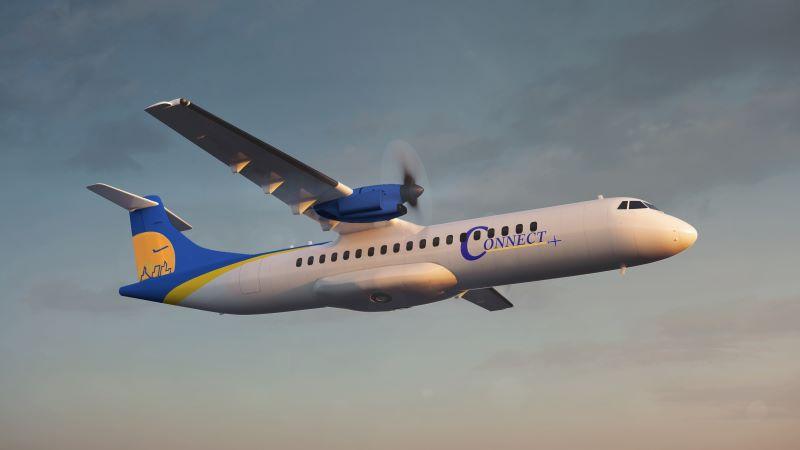
Aspiring U.S.-based startup Connect Airlines is under pressure to show it can finish its FAA certification process and still meet Transportation Department (DOT) requirements in the coming weeks or it may lose its economic authority to fly scheduled service.
Connect, granted DOT economic approval to start services on July 5, 2022, is still working with FAA on necessary safety approvals. Under DOT rules, start-up airlines have one year to launch services following agency approval or risk having the authority revoked.
Connect on June 16 asked DOT for an extension of its pending deadline, citing its “unusually complicated” plan, which includes launching scheduled domestic and international flights as well as charters right away. DOT’s July 6 response lists several concerns that must be addressed before it will consider an extension.
“Connect must provide adequate evidence that it still meets [DOT’s] fitness criteria and that the applicant is making satisfactory progress in obtaining the required safety authority from the FAA,” the department wrote. “In addition, given the predominate foreign capitalization in Connect’s case, the department also required the applicant provide evidence of additional capital contribution from U.S. citizens prior to its receipt of effective authority.”
In its request, Connect said it has submitted “final manuals and other materials” and “diligently addressed questions and feedback from the FAA.” It also has conducted at least some of the required proving runs.
DOT’s response suggested Connect’s FAA certification progress has stalled and may not regain needed momentum.
“Based on the department’s communications with the FAA, it does not appear that Connect has made satisfactory progress towards obtaining FAA authority,” the DOT wrote. “In fact, the FAA previously notified the department that Connect’s proving flights were terminated. Moreover, Connect provided no information with its waiver and extension request to enable us to determine that Connect continues to be fit or evidencing additional capital contributions from U.S. citizens.”
DOT is giving Connect, which had aspirations of starting service in summer 2022, until Aug. 4 to show it is still on track to start services and has sufficient U.S. investment.
The airline pushed back on DOT’s assertions, insisting the FAA certification process is still going and reiterating it is working diligently to meet the safety agency’s requirements.
“I can’t speak to what the FAA meant as reported by the DOT in their letter,” CEO John Thomas told Aviation Daily. “What I can tell you is the regulatory requirement is a minimum of 50 hr. per type of certificate and given we are going for domestic scheduled, supplemental [charters] and flag out of the gate that amounts to a minimum requirement of 150 hr. of proving flights. We completed 152 hr. of flying.” All that flying, he added, was done under a routine FAA letter of authorization that was not terminated.
“Since then, Connect in conjunction with the FAA has continued the certification process that could include additional proving runs,” he added. “We are currently in the process of updating our manuals for further FAA review.”
Thomas declined to provide details on the airline’s ownership structure, but said it is in compliance with U.S. requirements that limit foreign ownership interests to 25% of a U.S.-based airline and require U.S. citizens to be in control.
“Connect is fully aware of and meets the DOT’s ownership and fitness criteria,” he said.
An offshoot of Boston-based Part 135 operator Waltzing Matilda Aviation—which Thomas noted has been flying commercially since 2015 “and as such has and continues to meet all U.S. ownership requirements.” Connect plans to operate turboprops between U.S. business centers and Toronto. It will start by operating De Havilland Canada Dash 8-400s between Toronto Billy Bishop Airport and Chicago and Philadelphia.
The company has two Dash 8-400s and is ready to add three more to support service launch “shortly after completion of the regulatory process in the U.S. and Canada,” Thomas said.
Longer-term, Connect plans to link smaller cities with large hubs, focusing on business travelers that larger airlines are not carrying as they adjust their networks with larger-gauge aircraft. The carrier also plans to operate hydrogen-powered ATR-72-600s and Dash 8s using Universal Hydrogen conversion kits—part of its goal to be as carbon neutral as possible as quickly as possible.
